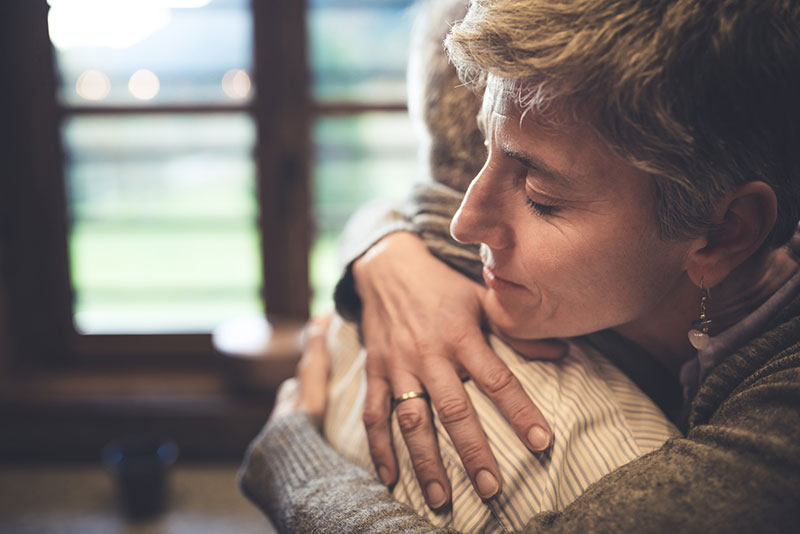
Following the death of a senior loved one, there are a number of tasks that need to be managed, and our guide can help make these tasks more manageable.
Following the death of a senior loved one, there are many personal and legal matters that must be handled. It can be challenging to know where to begin while also dealing with grief.
To make this process a bit easier to navigate, our senior care professionals have compiled the following practical timeline so you will know precisely what should be addressed when an individual you love passes away.
First Steps: Right Away After the Death of a Senior Loved One
- Get a declaration of death. Depending on your loved one’s location when he or she passed, this may be delivered by hospital staff, a hospice nurse, or a long-term care facility doctor. If you are taking care of the person at home without having the support of medical experts, call 911. EMTs will provide transport to the emergency room for a legal pronouncement of death.
- Alert friends and relatives. There are lots of ways you can accomplish this, according to what is most preferable for your needs. You might choose to personally contact each individual through a phone call, email, or face-to-face visit. You might want to ask for help, assigning others to contact a particular group of people (i.e., faith community members, friends from organizations the person was involved in, neighbors, etc.) to help spread the word. Or you may want to post on social media, permitting you to make one statement that reaches everybody in the person’s group of acquaintances.
- Schedule a gathering with immediate family to discuss funeral plans. If the senior had prepaid/preplanned final arrangements, you can review those plans with immediate family . If not, you can begin the discussion on initial details: which funeral home you’d prefer to go with, the available budget, and any high-level details you want to make sure to include.
Next Steps: Within 2 or 3 Days of a Loved One Passing Away
- Finalize funeral plans. Aided by the details from your initial family meeting, meet with funeral home staff to work through the specifics:
- Will the individual be buried or cremated?
- Which type of casket or urn do you want?
- Where will the service be held?
- Who will write the obituary? Serve as pallbearers? Speak at the service? Take care of thank-you notes? Organize a post-funeral gathering?
- Make sure the residence and any valuable items are secure. Lock up any jewelry, cash, or other precious items, as well as the person’s home and car. In addition, if the person had any pets, choose who is going to take over ownership – ensuring that they get a lot of attention and care, as they will be impacted by the loss and adjustments too.
- Forward mail. The post office can set up a forwarding order so that the individual’s mail will be rerouted to the appropriate person taking care of their affairs. The designated person will also need to monitor mail to terminate subscriptions and services, deal with any bills, etc.
Final Steps: Two Weeks After a Loved One’s Passing
- Pull together paperwork. Ask for ten certified copies of the death certificate, which will be needed to close bank accounts, file insurance claims, and more. The funeral home can assist you with this, or you can get them yourself through the state vital records office. You will also need to locate the person’s will and determine who the executor is.
- Speak to an attorney and CPA. A lawyer, chosen by the executor, will ease the job of settling the estate and dispersing possessions. A CPA can assist with filing the last tax return on the person’s behalf.
- Notify other organizations. The funeral home should contact the Social Security Administration, but you will want to verify this. Additionally, if the person had a life insurance plan, now is the time to file a claim. Talk to the senior’s bank(s), stockbrokers, and financial advisers to determine the beneficiary of the accounts and provide a copy of the death certificate. You’ll also need to close any credit card accounts and get in touch with the DMV to cancel their driver’s license.
Following the death of a senior loved one, there is frequently a surviving spouse who needs support and care. Home With You Senior Care, a provider of home care in Taneytown, MD and the surrounding communities, is here to help. Our care team offers compassionate companionship to reduce loneliness, help planning and preparing nutritious meals, assistance with a variety of personal care needs, and much more. Let us help so that you can focus on the many personal and legal details that need to be handled following a loved one’s passing. Reach out to us today at 410-756-0959 to learn more about our in-home care services.
